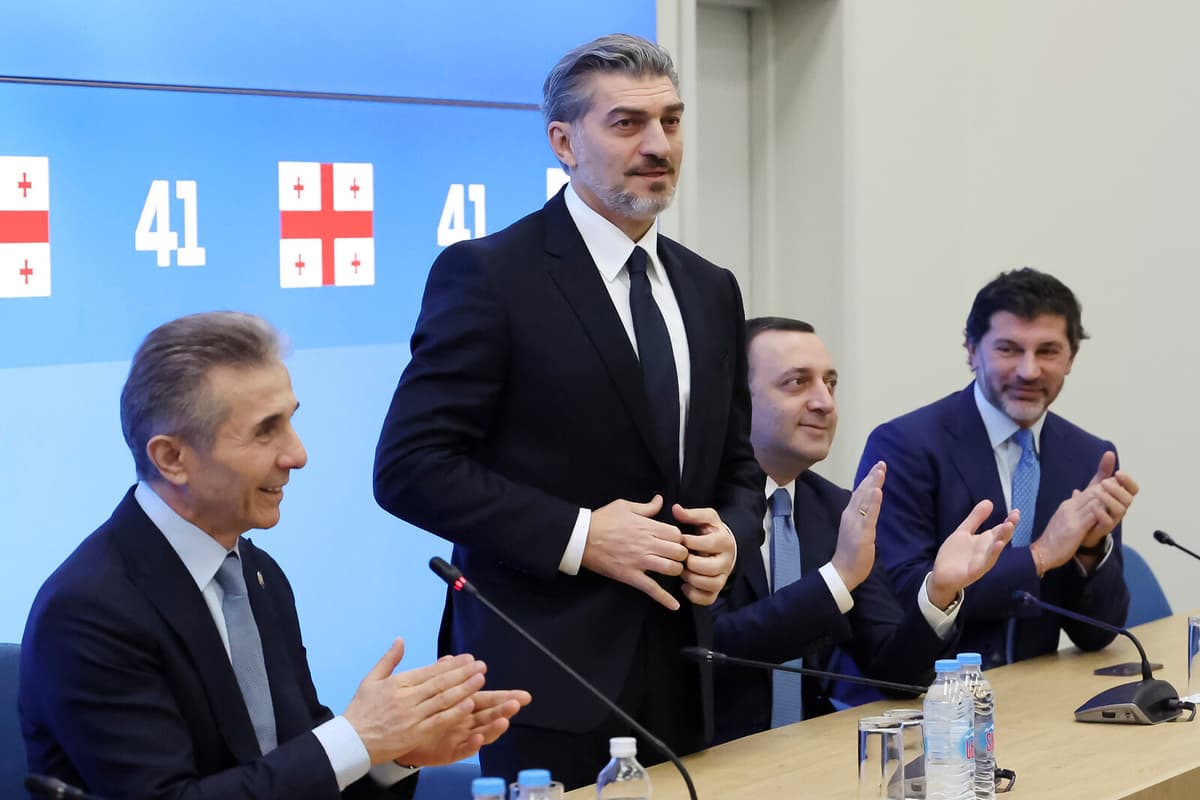The former soccer player Kavelasjvili is loyal to the ruling party Georgian Dream, unlike the sitting president Salomé Zourabichvili. She rejects both the parliamentary election earlier this year and all attempts to replace her.
Unlike before, the presidential election did not take place in the form of a general election, but in a special college that the ruling party has established. Since the opposition boycotted the process, only the ruling party's representatives and other loyal forces were present.
"The Georgian man"
Micheil Kavelasjvili was the only candidate nominated. He is known for his criticism of all Western influence in Georgia and his opposition to LGBTQ rights. He is the candidate who "best embodies the Georgian man", according to Georgian Dream's de facto leader Bidzina Ivanisjvili.
As a soccer player, Kavelasjvili was a foreign pro in Switzerland, but played for a period in the mid-1990s also in Manchester City.
The intended president represents a party group that broke away from Georgian Dream last year and is joining a "healthy opposition" that the ruling party claims to want. The Georgian Dream government has announced its intention to ban the main opposition in the country.
Since the current president refuses to resign, opposition lawmakers are boycotting parliament, and protests show no signs of abating, Micheil Kavelasjvili is likely to see his presidency undermined from the start.
Suspicions of fraud
Outside the parliament building, demonstrators gathered early on Saturday to protest against the election process, which they consider illegal.
Georgia went to the polls on October 26, but the result is not recognized by the Georgian opposition or the EU Parliament, which points to widespread electoral fraud. According to the official election result, the ruling party Georgian Dream won 89 of the 150 seats in parliament.
The government has since decided to freeze all talks about EU membership until 2028 – which has led to even larger and sometimes violent protests in the country. Demonstrators are also demanding that the autumn elections be re-held.
According to the official result after the election in Georgia on October 26, the ruling party Georgian Dream won with almost 54 percent of the votes.
The opposition received a total of around 38 percent, according to the election authority.
The result was immediately questioned by the opposition and the country's EU-friendly president Salomé Zourabichvili, who accused the government of a constitutional coup staged by Russia.
Georgian Dream has been accused in recent years of increasingly turning its back on the EU and instead looking towards Moscow, among other things through a series of Russia-inspired laws. This despite the country being granted candidate status to the EU at the end of 2023 – and despite Russia occupying about a fifth of Georgia since a six-day war in 2008.
When Prime Minister Irakli Kobachidze announced that all talks about EU membership would be frozen for four years – even though the talks had already been stopped on EU initiative – widespread demonstrations were triggered. Hundreds of people have been arrested and many have been injured, including police officers.






